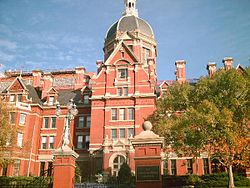Medical schools provide safety nets.
The safety net idea is to “catch” patients that fall through the system that catches and cares for the insured. Those that slip through are uninsured or have insurance that is insufficient to give them a foothold in the world of for profit hospitals and the physicians who staff them. When this issue is discussed it is usually from the perspective of what are called safety net hospitals. What about the physicians in those hospitals?
The safety net hospitals are county or city hospitals or other hospitals located in the inner city. These latter are nearly always university institutions. With few exceptions all three types are staffed by physicians that are on the faculty of a medical school. These are the physicians I worked alongside with during my career as an academic thoracic surgeon. They provide this care even though it means it means losing the opportunity to be seeing insured patients elsewhere. Medicine is a profession and that entails a responsibility to society. But we all want to provide the best we can for our family, so it is an economic sacrifice to staff these hospitals and care for these patients.
Historically the medical school faculty had their income somewhat compensated by stipends either from the medical school or the hospital itself. Increasingly, however, both institutions are being forced to diminish or stop these supplements as they are squeezed by insurance companies and Medicare/Medicaid. This, of course, squeezes the physicians. I know that the schools and their faculty physicians value their contribution to society and their care of these unfortunate patients; however, I worry about the future if this issue isn’t recognized and the squeezes continue and worsen.



